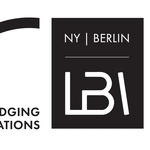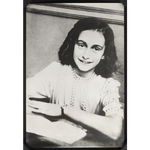Kibbutz on the Clay: The Story of the Jewish Pioneers of Franeker
Syds Wiersma





- Date/Time
- Format
- Online
- Admissions
- General: Free
Background
In 1935 a doctor in the city of Franeker, Netherlands, opened up a Kibbutz - a training ground for young Jews to gain skills in agriculture and physical labor in preparation for making Aliyah, or immigration to a new life in Palestine. Though not directly under the threat of Nazism, a number of young Jews living in the Netherlands became members of the community. Some of these members did, indeed, successfully achieve Aliyah, whereas others took their new skills elsewhere after time on the Kibbutz.
In 1940 the Nazis occupied the Netherlands. The Kibbutz continued to operate, now taking in a number of young Jews who had previously escaped Germany and Austria, only to find themselves again entrapped in Nazi-controlled Europe. Together they labored in agriculture for local farmers, gaining experience, and after strenuous days of physical labor studied Hebrew and Jewish history. But the community was not to last. At the end of 1941, on false charges, the Dutch police under the Nazi authorities raided the Kibbutz. Its members were arrested and sent from Franeker to Westerbork, which was soon to become the primary transit camp for the deportation of all Dutch Jews to their deaths in Poland.
In 2022 a memorial was created at the site of the Kibbutz in Franeker, accompanied by an exhibit at the city museum. This was in tandem with the publication of a book about the history of the Kibbutz, the title in English translation being "Kibbutz on the Clay: a Jewish Dream in Franeker."
Among those who lived in Franeker and did survive the Holocaust was Arthur Rath, who after retirement was a volunteer at the Leo Baeck Institute in New York for nearly 20 years.
Note: This is a virtual event.
About the Speaker

Join us for a presentation and follow-up discussion on the history of the Franeker Kibbutz led by Dr. Syds Wiersma, a historian at the University of Tilburg. He has been involved in both research for the exhibit that took place recently in Franeker about the Kibbutz, as well as helping author Auke Zeldenrust do research on his recently published book on the same topic. Mr. Wiersma will provide a historical overview of the Kibbutz Franeker, as well as highlight some individual stories.
Questions from the audience will follow.



